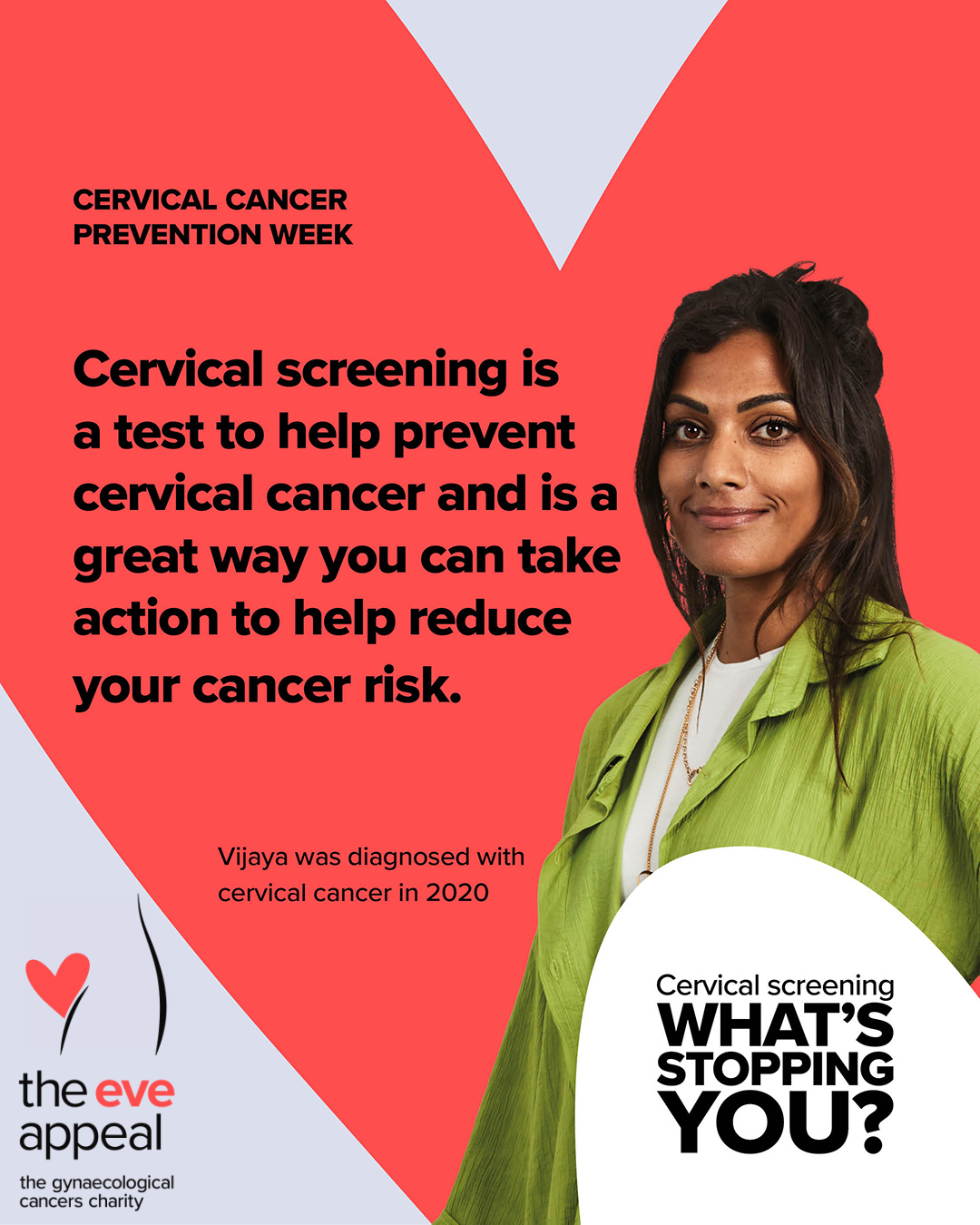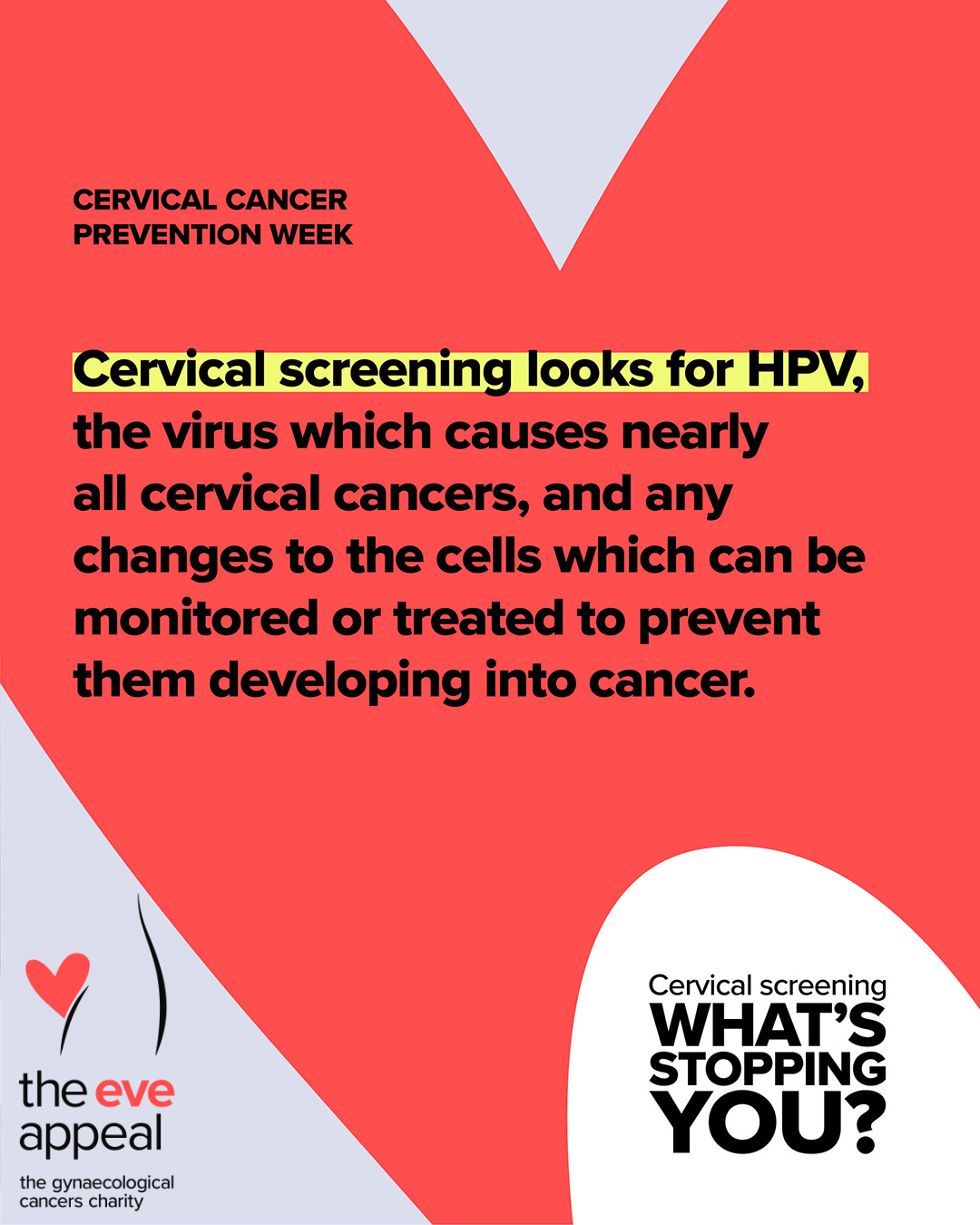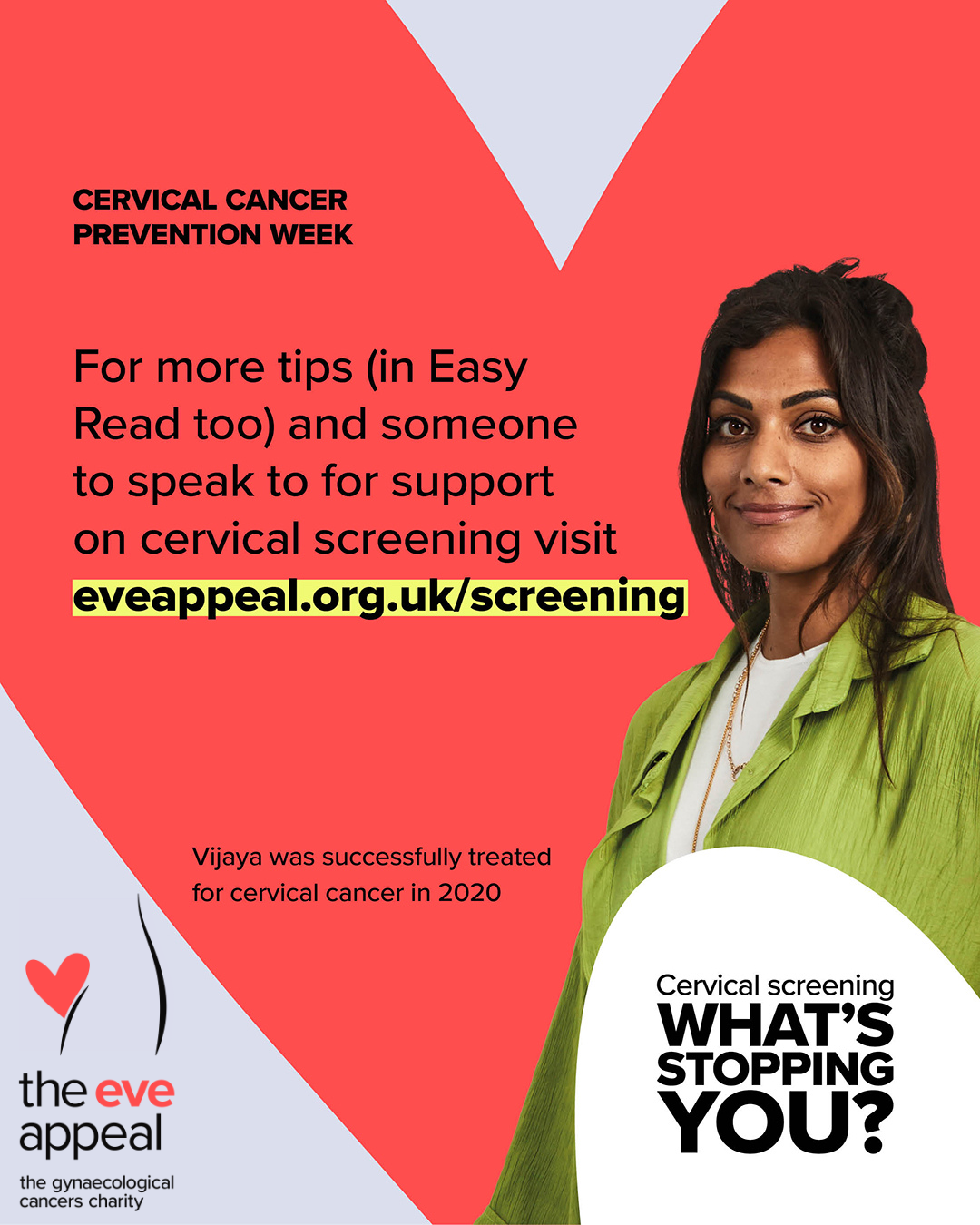Cervical Cancer Prevention Week
Event date and time: 20 January 2025 to 26 January 2025
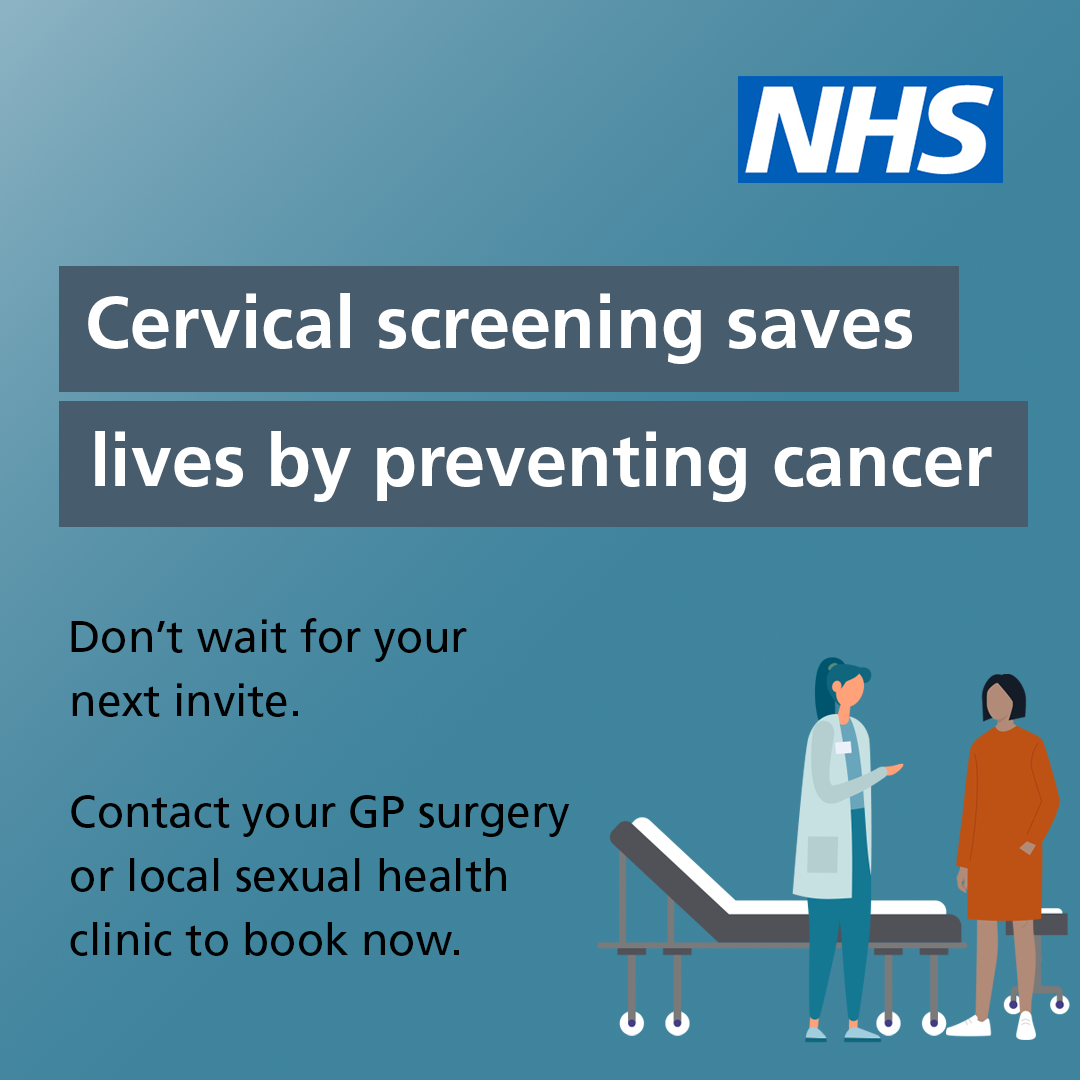 Cervical Cancer Prevention Week is 20-26 January
Cervical Cancer Prevention Week is 20-26 January
Cervical screening is one of the best ways to protect yourself from cervical cancer. The screening test checks the health of the cervix and helps find any abnormal changes before they can turn into cancer - it's not a test for cancer, it's a test to help prevent cancer.
Screening is offered to women and people with a cervix between the ages of 25 and 64. Those eligible will get a letter in the post inviting them to make an appointment. How often someone is invited depends on their age.
Booking your cervical screening appointment
If you have received an invitation for cervical screening, please don’t wait. Call your GP practice to book an appointment as soon as possible. Evening and weekend appointments are available at some GP practices, making it more convenient for you to attend. Some local sexual health services also offer cervical screening.

If you missed your last cervical screening, book an appointment with your GP practice now – it is not too late.
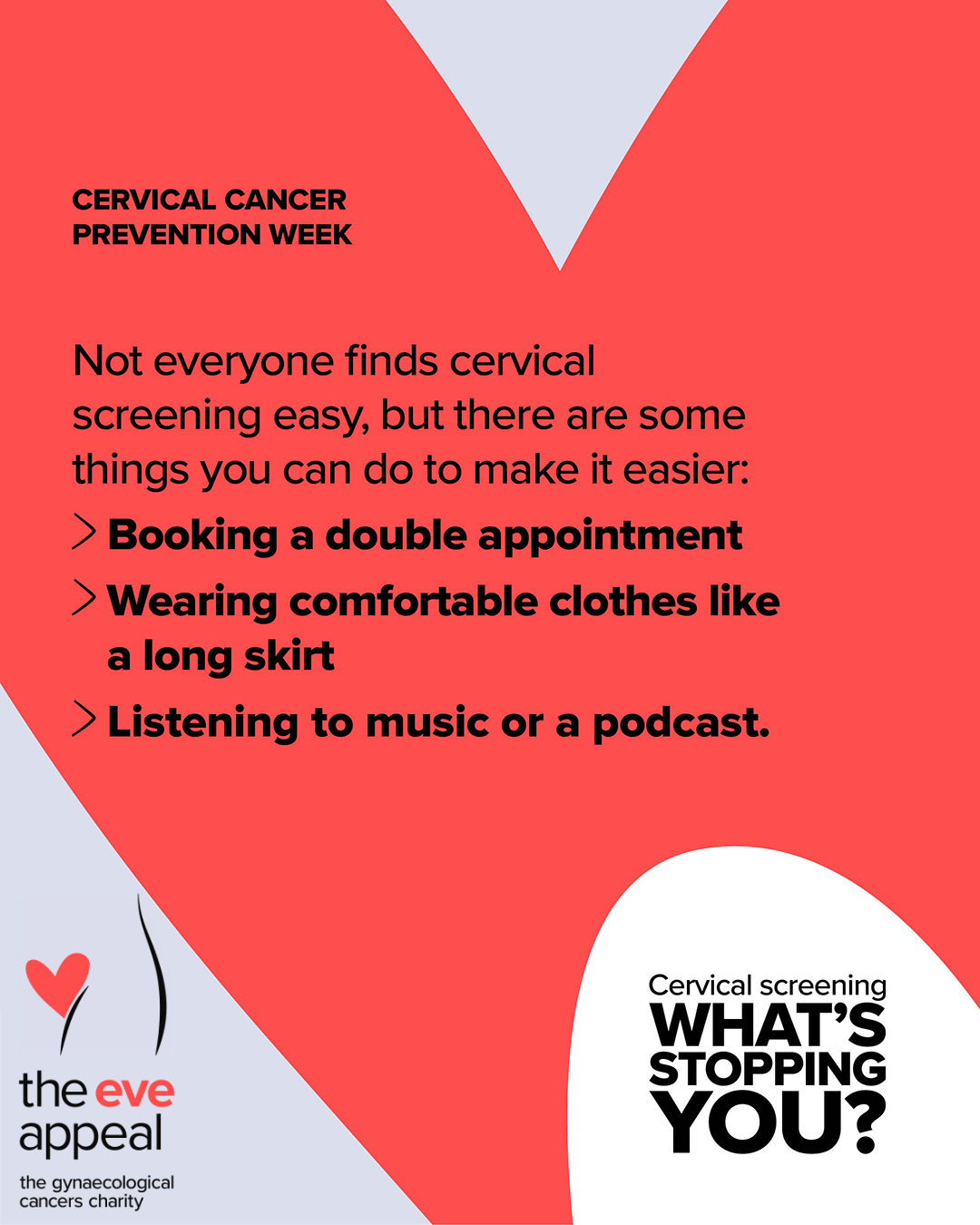 Top tips to make your screening appointment easier
Top tips to make your screening appointment easier
![]() The Eve Appeal charity has information about cervical screening and top tips to make the appointment easier. Find it all here: The Eve Appeal Cervical Cancer Prevention Week
The Eve Appeal charity has information about cervical screening and top tips to make the appointment easier. Find it all here: The Eve Appeal Cervical Cancer Prevention Week
Translated information - find information about cervical screening in various languages here: Translated Cancer Information
The HPV Vaccination
The HPV vaccine reduces your chances of getting human papillomavirus (HPV), a common virus that's spread through skin contact (usually when having sex). Most types of HPV are harmless. But some types are linked to an increased risk of certain types of cancer, including cervical cancer. Find out more here: NHS HPV Vaccine.
If you've had the HPV vaccine, it does not protect you from all types of HPV, so you're still at risk of cervical cancer. You should continue to attend for cervical screening when you receive your invite.
For healthcare professionals:
- Surrey and Sussex Cancer Alliance has produced a toolkit to support primary care in improving uptake in cervical screening. It provides practical information on what steps PCNs can take to improve uptake plus awareness resources for GP waiting rooms and a handy checklist to record actions taken. Find it here: SSCA Improving Cervical Screening Uptake Toolkit
- To support the safe and effective delivery of sample taking in the NHS Cervical Screening Programme and reduce the number of avoidable sample rejections, a checklist has been created by the Kent, Surrey & Sussex Public Health Commissioning Team. The checklist provides a detailed breakdown of the areas cervical screening sample takers must ensure are correct as part of the sample taking process, plus simple prompts to ensure the correct process is followed. Find it here: Cervical Screening Checklist
- Surrey and Sussex Cancer Alliance has produced Improving Human Papillomavirus (HPV) Vaccine Uptake Toolkit for general practice. It provides practical advice to support opportunistic uptake for the catch-up cohort and help prevent HPV-related cancers such as cervical cancer. Find the toolkit here: HPV Vaccine Uptake Toolkit
